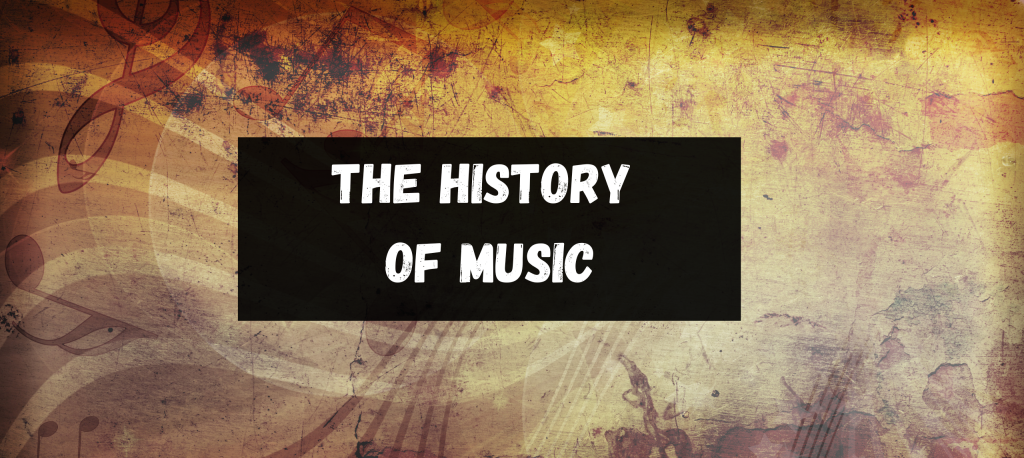August 17, 2023
Howard
Rock music is a genre that originated in the 1950s, characterised by a strong rhythm, amplified instruments, and often centred on the electric guitar. It encompasses various subgenres and has been a vital part of youth culture and rebellion. In the UK, it’s not just a style of music but a cultural symbol that continues to influence art, fashion, and society.
Rock music, an ever-evolving symphony of rebellion, emotion, and cultural expression, has undeniably left an indelible mark on the British cultural landscape. From the raucous rhythms of the Rolling Stones to the anthemic melodies of The Beatles, rock has not merely been a genre but a defining force that has shaped generations. But what is rock music exactly? The answer lies not just in the chords and beats, but in its very essence, a mixture of artistic innovation, political angst, and youthful vitality.
The journey through the labyrinth of rock’s multifaceted world is fascinating, filled with intriguing subgenres, legendary musicians, and profound societal impact. If you’ve ever found yourself tapping your feet to the beat of a rock song, or if you’re merely curious about this enigmatic genre, then you’re in for a treat. Join us as we explore the definition of rock music, its cultural significance, and why it continues to resonate within the very soul of British life. With surprising insights and engaging details ahead, this exploration promises to be an enthralling read for enthusiasts and newcomers alike.
The Roots and Evolution of Rock Music
Origins and Early Influences
Historical Background: Where Does Rock Music Come From?
Rock music, a captivating symphony of rebellion and rhythm, took root in the United States during the 1950s before swiftly crossing the Atlantic to find a fervent audience in the UK. It drew inspiration from African American blues, rhythm and blues, and country music. By the 1960s, Britain was not only consuming rock music but actively contributing to it, with bands like The Beatles and The Rolling Stones transforming the global musical landscape.

Foundational Artists in Early Rock Music
The British music scene was soon teeming with pioneering artists who would become foundational to rock music. Bands like The Who, Led Zeppelin, and solo artists like David Bowie were instrumental in defining the sound and style of rock. Their innovative approach to music challenged conventional norms and set the stage for what rock would become.
Development of Subgenres
An Overview of Different Types of Rock:
- Alternative Rock: Stemming from a desire to deviate from the mainstream, alternative rock is recognised for its diverse and unconventional soundscapes.
- Blues Rock: This genre marries traditional American blues with robust rock rhythms. Artists like Eric Clapton in the UK played a pivotal role in popularising it.
- Punk Rock: Emerging in the 1970s, punk rock stood as a defiant response to establishment norms. Bands like The Sex Pistols were at the forefront of this movement.
- Folk Rock: Seamlessly blending traditional folk tunes with rock elements, this subgenre presents a more melodic and softer auditory experience.
- Grunge: Originating in the 1980s and peaking in the 1990s, grunge is marked by its raw sound and introspective lyrics, with bands like Nirvana leading the way.
- Post-Rock: Characterized by its instrumental arrangements and atmospheric sound, post-rock often goes beyond traditional rock structures, aiming for a more expansive sound.
- Prog Rock (Progressive Rock): Known for its complex compositions, Prog rock often incorporates elements from classical music and jazz, leading to longer and more intricate musical pieces. Check out the best prog rock albums.
- Psychedelic Rock: This genre is marked by its exploratory sound, intended to replicate or evoke the experience of altered consciousness. Bands like Pink Floyd are notable contributors.
- Indie Rock: Independent from major labels, indie rock has a varied sound, often emphasising authenticity, originality, and DIY ethos.
- Latin Rock: Infusing rock with Latin American musical traditions, this genre offers rhythmic beats and unique instrumentations, resonating with a broad audience.
- Southern Rock: Rooted in the American South, this genre is distinguished by its blend of rock with country and blues, offering a distinctively warm and soulful sound.
- Glam Rock (or Glitter Rock): Emerging in the early 1970s, glam rock is characterized by its flamboyant fashion, theatrical performances, and catchy hooks. Artists like David Bowie and T. Rex were iconic figures in this movement.
- Rockabilly: A 1950s subgenre of rock ‘n’ roll blending country and rhythm & blues, characterized by energetic rhythms and twangy guitars, with artists like Elvis Presley exemplifying its sound.
- Garage Rock: Garage rock is a raw, energetic style of rock and roll music that emerged in the mid-1960s, characterized by its simple melodies, limited production values, and often rebellious attitude, typically performed by young, amateur bands.
- Surf Rock: an early 1960s genre characterized by reverb-drenched guitar melodies that capture the atmosphere and energy of Southern California’s beach and surfing culture.
Fusion with Other Genres
The Creation and Impact of Folk Rock
The fusion of folk and rock music was a natural evolution, offering a softer and more poetic musical experience. British artists like Fairport Convention played a crucial role in creating this subgenre, blending traditional British folk tunes with rock instruments.
Intersection with Electronic and Experimental Styles
As technology advanced, so did rock music. The intersection of electronic and experimental styles gave birth to new sounds and effects. British bands like Pink Floyd and Radiohead have been at the forefront of this fusion, pushing the boundaries of rock, experimenting with synthesisers, and creating immersive soundscapes.

In summary, the roots and evolution of rock music are deeply intertwined with British culture and identity. From its early influences to the development of various subgenres and fusion with other musical styles, rock music continues to be a vibrant and evolving art form in the UK. Its history is not just a tale of chords and melodies but reflects societal change, technological innovation, and a relentless quest for artistic expression.
Key Elements and Characteristics of Rock Music
Musical Style and Technology
Musical Eclecticism in Rock
One of the defining traits of rock music is its vast array of styles and sounds. From the blues-inspired rhythms of the early days to the aggressive energy of punk, rock’s eclectic nature allows it to reinvent itself continuously. British bands like Queen have been known to experiment with various styles within a single album, displaying rock’s ability to transcend musical boundaries.
The Role of Technology in Modern Rock
Technology has significantly shaped the sound and reach of modern rock music. Electric guitars, synthesisers, and advanced recording techniques have enriched the musical texture and allowed British artists like The Prodigy to create entirely new subgenres, such as electronic rock. The technological advancements in live performances, such as lighting and sound systems, have also elevated rock concerts into immersive experiences.
Symbolism and Themes
Rock and Youth Culture
In the UK, rock music has always been synonymous with youth culture. It’s not merely a genre; it’s an emblem of rebellion, freedom, and self-expression. Whether it’s the wild energy of The Who or the rebellious spirit of The Clash, rock music has given a voice to generations of British youth, allowing them to challenge the status quo and define their identities.
Rock’s Connection with Social and Political Movements
Beyond mere entertainment, rock music in Britain has often been a vehicle for social and political commentary. From the protest songs of the ’60s to the anti-establishment anthems of punk, rock musicians have used their platform to address issues such as war, inequality, and civil rights. Iconic songs like John Lennon’s “Give Peace a Chance” or The Rolling Stones’ “Street Fighting Man” have not only reflected societal discontent but have galvanised movements and inspired change.
In essence, the key elements and characteristics of rock music extend far beyond the notes and lyrics. It’s a genre shaped by technological innovation and cultural dynamics, deeply connected to the pulse of British society. Its eclectic musical styles, symbolic themes, and the unique fusion of technology have made rock music a multifaceted art form that continues to resonate with fans across the UK and the world. It’s a loud genre that’s not afraid to have loud opinions!
Notable Figures and Contributions
Crucial Rock Musicians and Bands
The British rock scene has given birth to a multitude of talented musicians and bands that have not only shaped the genre but have left an indelible mark on the global music industry. The Beatles, known as the “Fab Four,” revolutionised music with their innovative songwriting and harmonies. The Rolling Stones, with their gritty performance style, became synonymous with rock’s rebellious spirit. Queen’s theatricality, Led Zeppelin’s power, and David Bowie’s (literally the embodiment of a rock god, with his unworldly personas and androgynous aesthetic!) avant-garde approach all contributed to the rich tapestry of British rock music.
Influential Albums and Songs
Certain albums and songs have transcended their time, becoming timeless classics and defining the eras they were born in. Albums like Pink Floyd’s “The Dark Side of the Moon” or The Beatles’ “Sgt. Pepper’s Lonely Hearts Club Band” are landmarks in musical innovation. Songs such as “Bohemian Rhapsody” by Queen or “Stairway to Heaven” by Led Zeppelin are beloved tracks and masterpieces that continue to inspire musicians and fans alike.
Legends of Rock ‘n’ Roll
The UK has been home to many legends of rock ‘n’ roll, individuals whose charisma, talent, and vision have turned them into icons. Sir Elton John’s flamboyant style and poignant lyrics have made him a global superstar. Jimi Hendrix, though American-born, found his fame in London, revolutionising guitar playing with his experimental techniques (like using a beer bottle or a cigarette lighter as a guitar slide!). The tragic loss of charismatic frontmen like Freddie Mercury and John Lennon has only added to their legendary status, with their music living on as a testament to their genius.
In conclusion, the notable figures and contributions of British rock music are a diverse and illustrious assembly of artists, albums, and songs. From the ground-breaking bands to the influential tracks, from the legends of rock ‘n’ roll to the hidden gems, each has played a vital role in crafting the sound and soul of rock music. Their legacies continue to influence new generations, ensuring that the beat of rock music in Britain remains as vibrant and vital as ever.
Modern Trends and Future Prospects
Contemporary Landscape
Current Trends in Rock Music
In the ever-shifting landscape of British rock music, contemporary trends often reflect broader cultural shifts and technological advancements. The rise of indie and alternative rock bands like Arctic Monkeys and Radiohead exemplifies a more experimental and introspective approach. The fusion of rock with electronic elements, as seen in acts like Muse, is another exciting development, demonstrating rock’s adaptability and willingness to embrace new sounds.
How Rock Continues to Evolve and Resonate
The resilience and enduring popularity of rock music in Britain lie in its ability to evolve with the times. By absorbing influences from various genres and cultures, rock resonates with audiences of all ages. Festivals like Glastonbury are a testament to rock’s ongoing relevance, showcasing both legendary acts and emerging talent and keeping the spirit of rock alive and thriving.
Future of Rock
Predictions and Speculations on the Direction of Rock Music
Predicting the future of rock music is as complex as the genre itself. Still, some speculations can be made based on current trends and historical patterns. The continued blending of rock with other genres like hip-hop and electronic music may further diversify the sound of rock. The rise of socially conscious rock artists who address political and environmental themes may also shape the genre’s future direction. Moreover, the proliferation of digital platforms will likely democratise the music scene, allowing more independent and unconventional rock artists to find their audience.
Debates and Controversies
Common Misconceptions about Rock Music
Rock music, with its rich and varied history, has often been misunderstood or stereotyped. Common misconceptions include the notion that all rock music is loud and aggressive or that it solely represents rebellion and anti-establishment attitudes. In reality, rock encompasses a wide range of sounds and themes, from soulful ballads to political anthems. British rock, in particular, has produced a diverse array of styles, reflecting the unique cultural mosaic of the nation.
Rock Music in Health and Lifestyle (e.g., workouts)
The pulsating rhythm and energising beats of rock music have found a place in the realms of health and lifestyle, particularly in workout routines. In many British gyms, rock music serves as a motivational backdrop, enhancing the intensity and enjoyment of exercise. However, this obviously wouldn’t be suited for Yoga!
The Debate: Is Rock and Roll Dying?
One of the most heated debates in the music industry is the question of whether rock and roll is dying. Critics argue that the genre has lost its edge and relevance, overshadowed by pop and hip-hop. On the other hand, proponents of rock, including many British musicians and fans, assert that the genre continually evolves, finding new avenues of expression and reaching fresh audiences. The success of contemporary rock bands, the resurgence of vinyl records, and the enduring popularity of rock festivals across the UK provide compelling evidence that rock and roll is alive.

UK Rock Music Festivals
- Glastonbury Festival – Based in Somerset, Glastonbury is a cultural phenomenon. While it spans a vast array of genres, rock has always been a significant part of its lineup. From legendary Pyramid Stage performances to the smaller stages scattered throughout the site, Glastonbury remains a key event for rock enthusiasts.
- Download Festival – Located at Donington Park, it’s the UK’s premier rock and heavy metal festival, attracting major international acts every year.
- Reading & Leeds Festivals – These twin festivals held in Reading and Leeds respectively are among the UK’s most iconic, with lineups spanning rock, indie, punk, and other genres (though is quite pop orientated nowadays).
- Isle of Wight Festival – One of the UK’s oldest festivals, its legacy dates back to the 1960s. Over the years, it’s hosted some of rock’s biggest names.
- Bloodstock – Held in Derbyshire, this festival is a go-to for fans of heavy metal and its subgenres.
- Stone Free Festival – A newer festival held in London, focusing on classic rock and prog.
- Steelhouse Festival – Taking place in Ebbw Vale, South Wales, it’s the UK’s highest music festival, offering a mix of classic rock and newer bands.
- Hard Rock Hell – A series of events that cater to various rock and metal subgenres, held at different times and places throughout the year.
- 2000trees Festival – Located in the Cotswolds, this festival showcases a blend of alternative rock, punk, and indie bands.
- ArcTanGent – Held near Bristol, it’s a haven for fans of math-rock, post-rock, and related genres.
- Desertfest – Based in London, this festival specialises in stoner rock, doom, and sludge genres.
These festivals represent just a fraction of the UK’s vibrant rock scene.
UK Rock Magazines
Here’s a list of some popular rock music magazines in the UK:
- Kerrang! – Focusing mainly on heavy metal and rock, Kerrang! is arguably one of the most well-known rock magazines in the UK.
- Classic Rock – As the name suggests, this magazine offers coverage on classic rock artists and albums, alongside newer bands influenced by the classic sound.
- Metal Hammer – This is a major source for fans of metal in all its forms, from glam to black metal.
- NME (New Musical Express) – While historically a broad music magazine, it’s always had significant rock coverage. Its print version has been discontinued, but it continues as an online platform.
- Rock Sound – Primarily covering alternative rock, punk, and metalcore, this magazine offers a perspective on the heavier end of the rock spectrum.
- Prog – Dedicated to progressive rock and its sub-genres, it’s a must for fans of bands like Pink Floyd, Yes, and their contemporaries and successors.
- UNCUT – While it covers a wide range of music, rock remains a central part of its content.
- Mojo – This magazine provides an in-depth look at both classic and contemporary rock artists and albums.
- Louder (previously TeamRock) – An online source that encompasses several of the above print titles under its umbrella, offering content from the worlds of rock, metal, and prog.
The fact that these magazines are still lingering about would suggest that the genre isn’t entirely dead! However, one thing to point out is that it is much easier to record electronic or pop music at home studios, whereas it’s much more difficult to record a full band. This perhaps explains why there’s less rock music about, and why there’s a much lower following than in previous decades and younger generations.
Frequently Asked Questions
Rock music distinguishes itself through its strong rhythmical emphasis, typically driven by the bass guitar, drums, and electric guitar. Its versatility in combining various musical elements and its emotional intensity set it apart.
The term “rock” in rock music likely originates from “rocking and rolling,” a phrase used in African American vernacular during the early 20th century to describe dancing. The term gradually evolved to encompass a musical style characterised by its rhythmic drive and energetic performance. (I always thought it was called rock because it hits you hard!)
Choosing the best love songs in rock music is subjective, as tastes vary widely. However, British rock has provided some universally beloved love songs such as “Something” by The Beatles, “Your Song” by Elton John, and “Wonderful Tonight” by Eric Clapton.
Pianos have been an integral part of rock music, adding depth and richness to the sound. British musicians like Elton John and Freddie Mercury have been instrumental in showcasing the piano’s role in rock, crafting timeless pieces that blend rock’s energy with the piano’s classical grace.
Conclusion
Rock music, a genre that began as a pulsating rhythm and evolved into a multifaceted musical phenomenon, has left an indelible mark on the global soundscape. In Britain, its impact resonates deeply, from the rebellious anthems of the ’60s to the innovative subgenres that continue to emerge today. The enduring legacy of rock is not only in its musical masterpieces but also in its ability to voice societal concerns, challenge norms, and unite people across generations. British rock, with its rich tapestry of influences, remains a vital and vibrant part of our cultural heritage.
Whether you find solace in a soulful love song or energy in a roaring guitar riff, rock music has something to offer. In the words of one of Britain’s rock legends, Freddie Mercury, “We will, we will rock you.” And indeed, rock music does just that. It rocks our world, stirs our souls, and continues to express human emotion and creativity. So turn up the volume, delve into the classics, explore the new waves, and let the enduring legacy of rock music resonate within you. The journey through rock’s diverse world is not just an auditory experience; it’s an exploration of who we are, where we’ve been, and where we might go. Let the music play on!
Can I Tickle Your Fancy With These?

Howard Head
I turn confused bass enthusiasts into bass gods through a simple and logical process.

















